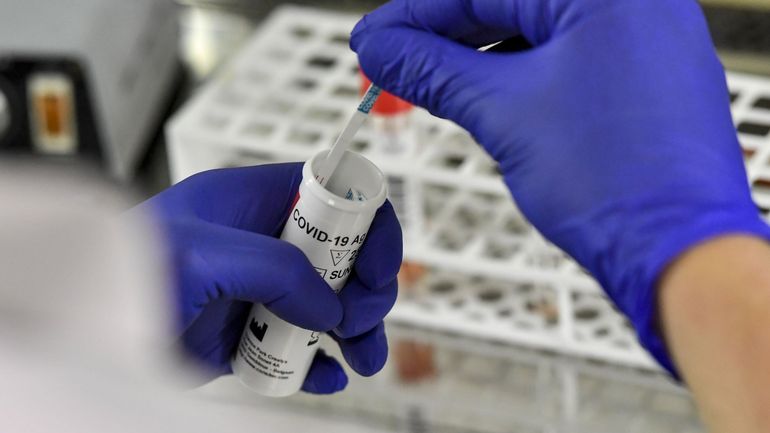A company in the Netherlands has developed a handheld device capable of detecting the new coronavirus (Covid-19) within minutes, according to its founders.
Spektrax, a nanotechnology company in Amsterdam, has developed a portable device which can detect the virus in mucous membranes using a chip and a scanner.
Like the PCR tests being widely used by countries to test populations for the virus, the company's testing protocol starts with a swab sample taken from a patient's mouth or nose, HLN reports.
Related News
- Coronavirus infection rate on the rise in Germany
- Over 1.7 million surgical masks distributed in Belgium in past few days
- Maggie De Block: Life may never be the same again
The harvested sample is then inserted into the device's chip, which is then analysed with a scanner capable of revealing the presence of the virus.
Founders Eva Rennen and Johan Pieter Verwey told the outlet that the longest part of the process is taking the samples from the patient, with the actual analysis by the device taking between 10 to 30 seconds.
According to Rennen and Verwey, around 30 people can be screened for the virus in the space of an hour with their device, which works with a reusable scanner and disposable chips.
The company said that their technology, which is not yet ready for commercialisation, has the potential to roll-out large-scale and rapid testing "anywhere in the world, without expensive and time-consuming lab facilities."
The device is being produced primarily for use by doctors, but Verwey said that it would be possible to supply it more broadly.
The development of their testing technology comes as the coronavirus pandemic strains global supplies of the medical reagents needed for detecting the virus in laboratories, with countries struggling to get enough to screen populations.
The company, who say in their mission statement that they aim to "democratise diagnostics," have said their invention could offer a way to "get the world moving again" by fast-tracking and widening testing.
Rennen and Verwey said that they were aiming to make their device's testing capabilities "100% reliable," and that they had made promising progress so far.
Gabriela Galindo
The Brussels Times

